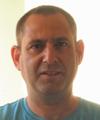L. Chad Horne

I have a BA in Philosophy and Political Science from Vanderbilt University, and a PhD in Philosophy from the University of Toronto.
My research focuses on the theory of the welfare state. I’m especially interested in how social institutions work and how their workings map on to theories of distributive justice.
My doctoral research looks at health care institutions in particular, arguing that universal health care is best justified in terms of the security against risk that health care insurance provides (together with the failure of private markets to deliver adequate access to such insurance). I think this view provides not only a more compelling rationale for universal access compared to rival egalitarian accounts, but also a better fit with the logic of existing health care systems throughout the developed world.
I continue to work on questions of health care justice, but my current research focuses on issues related to social insurance more broadly. I am particularly interested in the place of risk and security in a political conception of well-being, and how this relates to the rationale for universal, mandatory social insurance programs.
Personal webpage: https://huji.academia.edu/ChadHorne
Ofer Malcai

I hold two PhD's (quite pathetic, let’s admit); in physics (2003) and law (2015), both from the Hebrew University. Last year, I was a post-doc fellow at the Safra Center for Ethics at the Tel-Aviv University.
My primary research interests lie in legal and moral philosophy. In particular, I focus on legal and moral epistemology; the relationship between procedural and substantive justice; and the foundations of (moral and legal) normativity. In my doctoral dissertation, I explored the coexistence, in normative discourse, of “first-order” and “second-order” norms – roughly, norms about other norms. My general hypothesis was that this coexistence is responsible for the complex, somewhat paradoxical, nature of the normative domain.
As a post-doctoral fellow at the Centre for Moral and Political Philosophy at the Hebrew University, I plan to continue this research and investigate further the key model of pure procedural justice, namely, a fair lottery, and more generally, the role of chances in distributive justice and political morality.
